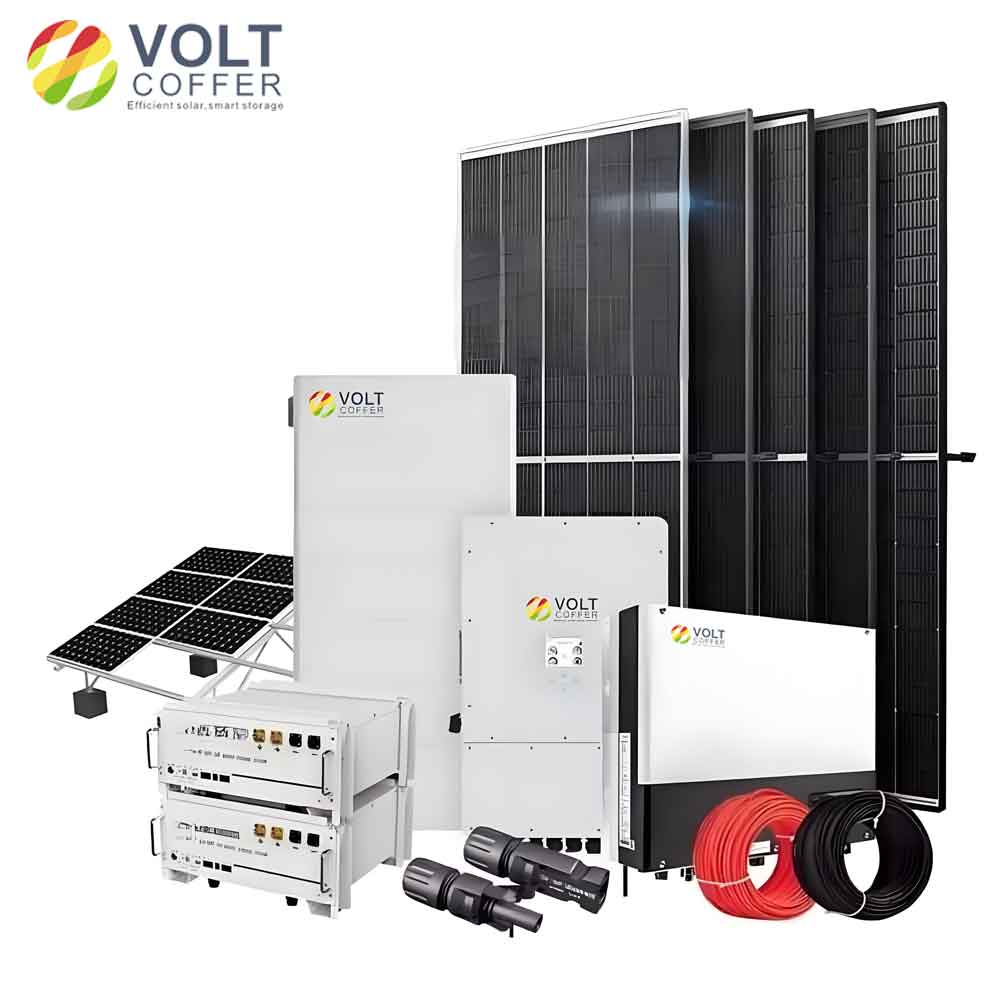Introduction
The integration of a Home Solar Energy System with smart home technologies represents a significant advancement in residential energy management. This synergy not only enhances the efficiency and convenience of energy use but also promotes sustainability by optimizing the generation, storage, and consumption of solar energy. This article explores the various aspects of integrating a Home Solar Energy System with smart home technologies, highlighting the benefits, challenges, and best practices.

Benefits of Integration
Enhanced Energy Efficiency
Integrating a Home Solar Energy System with smart home technologies significantly improves energy efficiency. Smart home devices can monitor and control the energy usage of appliances, ensuring that solar energy is used optimally.
List: Key Benefits of Enhanced Energy Efficiency
- Reduced energy waste
- Lower electricity bills
- Increased utilization of solar energy
- Improved overall home energy management
Real-Time Monitoring and Control
Smart home technologies enable real-time monitoring and control of the Home Solar Energy System. Homeowners can track energy production, consumption, and storage levels through user-friendly interfaces on smartphones or tablets.
Table: Real-Time Monitoring Capabilities
| Feature | Description |
|---|---|
| Energy Production | Real-time data on solar energy generation |
| Energy Consumption | Monitoring of household energy usage |
| Battery Storage Levels | Status of energy storage in home batteries |
| System Health Alerts | Notifications for maintenance and performance issues |
Increased Sustainability
By integrating a Home Solar Energy System with smart home technologies, homeowners can maximize the sustainability of their energy usage. Smart systems can prioritize the use of solar energy for high-demand appliances and schedule the operation of energy-intensive devices during peak sunlight hours.
List: Sustainable Energy Management Practices
- Scheduling high-energy appliances (e.g., washing machines, dishwashers) during peak solar production times
- Using smart thermostats to manage heating and cooling based on solar energy availability
- Optimizing battery storage for night-time energy use
Smart Home Technologies for Solar Integration
Smart Inverters
Smart inverters play a crucial role in integrating a Home Solar Energy System with smart home technologies. These devices convert the direct current (DC) generated by solar panels into alternating current (AC) used by household appliances. Smart inverters also facilitate communication between the solar energy system and smart home devices.
List: Functions of Smart Inverters
- Conversion of DC to AC
- Monitoring of solar energy production
- Communication with smart home systems
- Grid interaction for energy export
Smart Meters
Smart meters provide real-time data on energy consumption, allowing homeowners to make informed decisions about their energy use. When integrated with a Home Solar Energy System, smart meters can help balance the energy generated from solar panels with household consumption.
Table: Features of Smart Meters
| Feature | Description |
|---|---|
| Real-Time Data | Immediate feedback on energy usage |
| Usage Patterns | Historical data to analyze consumption trends |
| Cost Tracking | Real-time tracking of energy costs |
| Alerts and Notifications | Notifications for unusual energy usage |
Smart Batteries
Smart batteries store excess solar energy generated during the day for use during night-time or cloudy periods. These batteries can be managed through smart home systems to optimize energy storage and usage.
List: Advantages of Smart Batteries
- Energy independence from the grid
- Backup power during outages
- Optimized use of stored solar energy
- Improved return on investment for solar installations
Smart Home Hubs
Smart home hubs act as the central control units for integrating various smart devices, including a Home Solar Energy System. These hubs enable seamless communication and coordination between solar panels, inverters, batteries, and household appliances.
Table: Capabilities of Smart Home Hubs
| Capability | Description |
|---|---|
| Device Integration | Connects and controls multiple smart devices |
| Centralized Control | Single interface for managing the entire system |
| Automation | Automates energy management based on set preferences |
| Voice Control | Integration with voice assistants for hands-free operation |
Challenges and Solutions
Interoperability
One of the primary challenges in integrating a Home Solar Energy System with smart home technologies is ensuring interoperability between different devices and systems. Compatibility issues can arise due to varying communication protocols and standards.
Solution: Standardization
Adopting industry-standard communication protocols and ensuring compatibility between devices from different manufacturers can mitigate interoperability issues.
Data Security
The integration of smart home technologies with a Home Solar Energy System raises concerns about data security and privacy. Unauthorized access to energy management systems can lead to security breaches.
Solution: Robust Security Measures
Implementing robust security measures, such as encryption, secure communication channels, and regular software updates, can protect against data breaches and unauthorized access.
Cost
The initial cost of integrating a Home Solar Energy System with smart home technologies can be high, which may deter some homeowners from adopting these solutions.
Solution: Financial Incentives
Governments and utility companies can offer financial incentives, such as rebates and tax credits, to reduce the initial investment cost and encourage adoption of integrated solar and smart home systems.
Conclusion
Integrating a Home Solar Energy System with smart home technologies offers numerous benefits, including enhanced energy efficiency, real-time monitoring and control, and increased sustainability. By leveraging smart inverters, smart meters, smart batteries, and smart home hubs, homeowners can optimize their solar energy usage and achieve greater energy independence. Despite challenges such as interoperability, data security, and cost, the future of residential energy management lies in the seamless integration of solar energy systems with smart home technologies. Adopting these integrated solutions will pave the way for more efficient, sustainable, and cost-effective energy management in homes.
